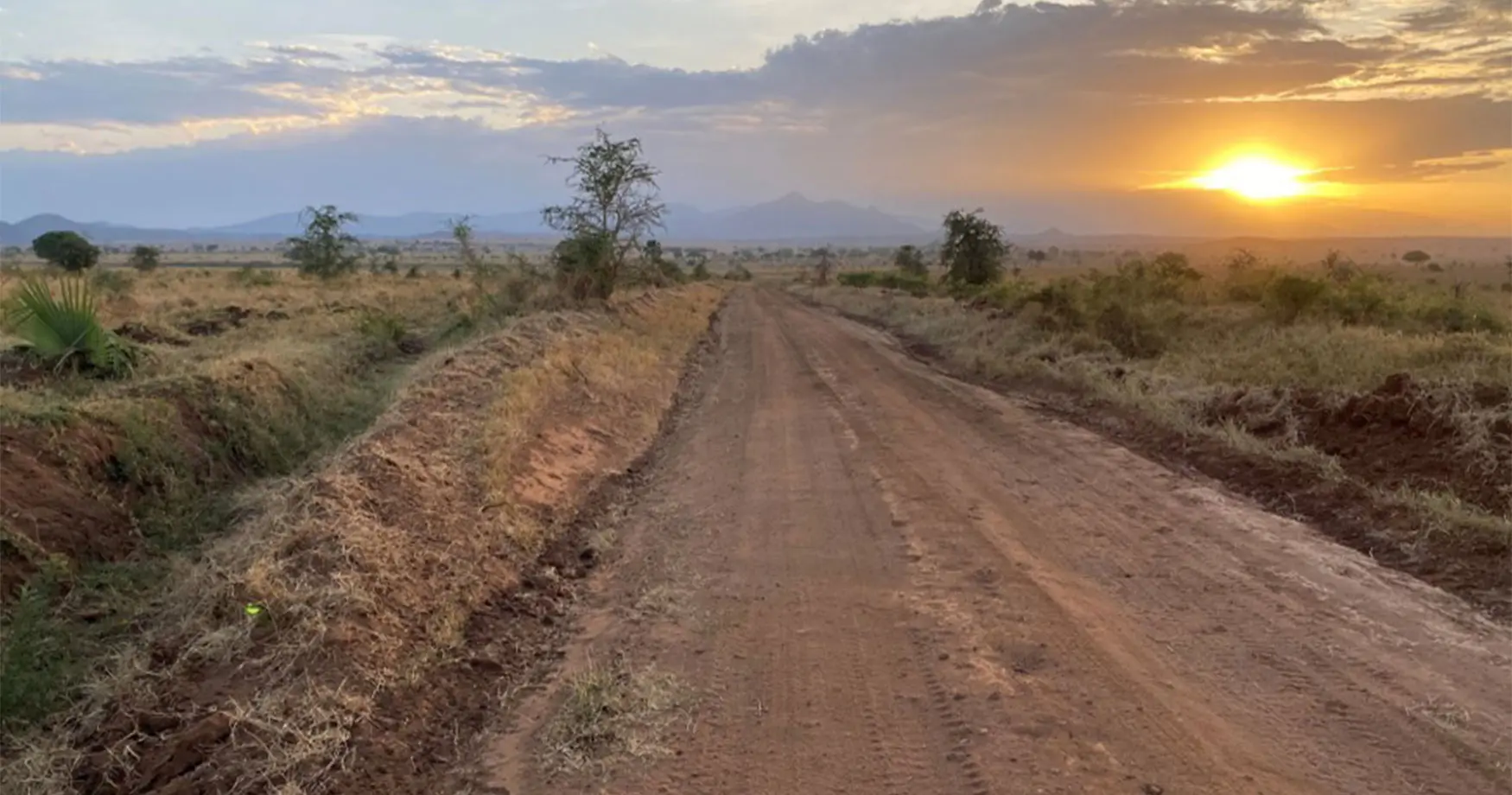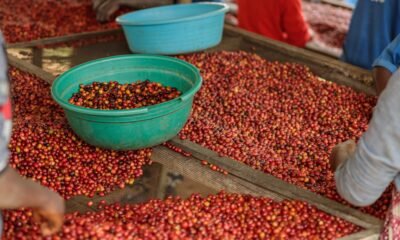Blog
A Growing Ebola Threat in Uganda and How to Stay Safe
On January 29, 2025, Uganda’s Ministry of Health declared an outbreak of Sudan virus disease (SVD), a deadly strain of Ebola. This marked the country’s eighth encounter with this hemorrhagic fever since 2000.

On January 29, 2025, Uganda’s Ministry of Health declared an outbreak of Sudan virus disease (SVD), a deadly strain of Ebola. This marked the country’s eighth encounter with this hemorrhagic fever since 2000. The outbreak began in Kampala, the bustling capital, when a 32-year-old male nurse died from the virus at Mulago National Referral Hospital. His death raised alarm bells because he sought treatment across multiple districts like Kampala, Wakiso, and Mbale. He even consulted a traditional healer, potentially spreading the virus before it was identified. As of March 18, 2025, the outbreak has caused multiple fatalities and tested Uganda’s resilience, but there are glimmers of hope amid the international response.
By March 5, 2025, the World Health Organization (WHO) reported 14 cases, 12 confirmed and 2 probable spanning six districts: Kampala, Jinja, Kyegegwa, Mbale, Ntoroko, and Wakiso. Four deaths have occurred, yielding a case fatality rate of 29%, which is lower than the historical average of 41% to 70% for the Sudan strain. The victims range from a 1.5-year-old child to a 55-year-old adult, with a mean age of 27 and a slight male majority (55%). A notable cluster of cases emerged in late February when a child under 5 died at Mulago Hospital, linking to additional infections.
The outbreak remains tied to a single transmission chain, with no spread beyond Uganda’s borders. As of March 17, there were no patients in care, and no new cases had been confirmed since March 2 raising cautious optimism that the worst may be over. If no further cases emerge, the outbreak could be declared over by mid-April, 42 days after the last exposure.
Uganda’s response has been prompt, utilizing experiences from its 2022 Ebola outbreak, which ended in January 2023 after 164 cases and 77 deaths. Within four days of the 2025 outbreak’s declaration, WHO and partners initiated a groundbreaking vaccine trial on February 3, utilizing a candidate from IAVI. This ring vaccination strategy targets high-risk contacts, marking a first in testing efficacy against Sudan virus disease during an outbreak. Experimental treatments, including a monoclonal antibody and remdesivir, are also undergoing clinical trials. By March 5, 192 new contacts were under surveillance, while 299 had completed a 21-day monitoring period.
International support has been critical. WHO allocated $3 million from its Contingency Fund for Emergencies, and Sweden contributed approximately $2 million (7.3–7.5 billion Ugandan shillings) to bolster Uganda’s efforts, likely aiding vaccine and containment initiatives. However, challenges persist. The absence of an approved vaccine or treatment for Sudan virus disease, combined with reported cuts in U.S. foreign aid under the Trump administration, has strained resources, according to U.S. officials on March 7.
Ebola spreads through direct contact with bodily fluids ie.blood, saliva, sweat, or vomit from an infected person or via contaminated surfaces. While Uganda’s outbreak is localized, understanding prevention is vital, especially in affected areas or for travelers. Here’s how to stay safe:
- Practice Good Hygiene: Wash hands frequently with soap and water or use an alcohol-based sanitizer. Avoid touching your face, especially your mouth, nose, and eyes.
- Avoid Contact with Sick Individuals: Stay away from anyone showing symptoms like fever, vomiting, diarrhea, or bleeding. Ebola is most contagious when symptoms are severe.
- Handle Animals with Care: Ebola can originate from wildlife such as bats or monkeys. Avoid handling bushmeat or wild animals, especially if they are sick or dead.
- Use Protective Gear: Healthcare workers and caregivers should wear gloves, masks, and gowns when near patients. Properly dispose of contaminated materials.
- Stay Informed: Follow updates from Uganda’s Ministry of Health or WHO. Avoid rumors and rely on verified sources.
- Seek Medical Help Early: If you experience fever, fatigue, muscle pain, or bleeding after potential exposure, isolate yourself and contact a health facility immediately.
Community education and contact tracing are crucial to Uganda’s strategy, emphasizing the importance of reporting symptoms and avoiding traditional practices like touching the deceased during burials, which have fueled past outbreaks.
The Ebola outbreak in Uganda in 2025 highlights both the danger of emerging diseases and the power of coordinated action. The vaccine trial offers hope for a future tool against Sudan virus disease, while Sweden’s aid and WHO’s leadership demonstrate global solidarity. For Ugandans in affected districts, vigilance remains essential. Washing hands, avoiding risks, and heeding health advisories could be the difference between containment and catastrophe. As the world watches, Uganda’s efforts may shape how we tackle Ebola for years to come.
Entertainment
Ugandan Musical Artists Are Too Comfortable And It Isn’t Good
Having built a fanbase or scored a hit song, some artists feel pitching to brands is beneath them, as if it signals desperation or diminishes their credibility.

The music industry in Uganda is a grind. Producing, writing, mixing, mastering, distributing, and publishing a song demands immense effort, time, and resources. Marketing, the beast that can make or break an artist, adds another layer of complexity. For those who break through and build influence, endorsement and ambassador deals with brands offer a golden opportunity to monetize their fame and expand their reach. Yet, a troubling trend persists: many Ugandan artists, even those with significant leverage, shy away from pitching to brands, expecting companies to come knocking. This sense of entitlement is a dangerous misstep in an industry where opportunities must be seized with both hands.
Creating music in Uganda is no small feat. From securing studio time to navigating distribution platforms, every step is a financial and creative hurdle. Marketing requires a strategic blend of social media savvy, live performances, and fan engagement, often with limited budgets. For artists who manage to “blow up” and gain a loyal following, endorsement deals can provide financial stability and exposure. These partnerships whether product placements, social media campaigns, or brand ambassadorships can fund tours, music videos, or even the next big hit. But securing these deals often requires proactive effort, something many Ugandan artists seem reluctant to embrace.
Conversations with influential Ugandan artists reveal a surprising mindset: many believe brands should approach them, not the other way around. This stems from a mix of pride and a misconception about their status. Having built a fanbase or scored a hit song, some artists feel pitching to brands is beneath them, as if it signals desperation or diminishes their credibility. This couldn’t be further from the truth. In the corporate world, it’s often the hungriest artists, those with smaller followings but relentless drive who send polished proposals and land deals. Meanwhile, established artists, comfortable in their success, miss out by waiting for opportunities to fall into their laps.
This entitlement is a luxury Ugandan artists can ill afford. Unlike global stars with massive teams and international reach, most Ugandan artists operate in a competitive, resource-scarce market. Brands, whether local or multinational, prioritize artists who demonstrate initiative and align with their values. Waiting passively risks being overlooked in favor of hungrier, less complacent peers.
Pitching to brands isn’t just about chasing money, it’s about building strategic partnerships that amplify an artist’s career. A well-aligned endorsement deal can introduce an artist to new audiences, fund creative projects, and enhance their brand image. For example, a Ugandan artist with a youthful, vibrant fanbase might pitch to a telecom company like MTN or Airtel, whose campaigns often target young consumers. By crafting a proposal that highlights their audience demographics and cultural relevance, artists can position themselves as valuable partners.
Moreover, pitching demonstrates professionalism and ambition, qualities brands respect. In Uganda’s growing economy, companies in sectors like fashion, beverages, and tech are increasingly open to collaborating with artists. But they won’t always seek out talent especially in a market where data on audience reach isn’t always readily available. Artists who take the initiative to research brands, tailor proposals, and negotiate terms stand out in a crowded field.
The reluctance to pitch to brands reflects a deeper issue: complacency. Many Ugandan artists, buoyed by local fame or social media clout, assume that their status is enough to attract brands. This mindset overlooks the reality of the corporate world, where brands prioritize measurable impact and seek proactive partners. By not pitching, artists miss out on financial support, exposure, and the opportunity to build long-term relationships that could sustain their careers through the industry’s ups and downs.
This complacency also risks alienating fans. In an era where authenticity matters, fans expect artists to hustle just as hard as they do. A poorly executed or inauthentic deal can backfire, but so can inaction. Fans admire artists who seize opportunities and elevate their craft rather than those who rest on their laurels.
To thrive in Uganda’s challenging music industry, artists must shed the entitlement mindset and embrace the hustle of pitching to brands. Here’s how to start:
- Know Your Worth: Understand your audience size, demographics, and influence. Use analytics from platforms like X or Instagram to gather data for your pitch.
- Research Brands: Target companies whose values align with your music and image. Local brands like Bell Lager or global ones like Pepsi often seek cultural ambassadors.
- Craft a Strong Proposal: Highlight your reach, fanbase, and how you can add value to the brand. Be clear about what you offer social media posts, event appearances, or product placements.
- Stay Authentic: Choose partnerships that feel natural to avoid alienating fans. For instance, a reggae artist might pitch to a sustainable brand rather than a corporate bank.
- Network Relentlessly: Attend industry events, connect with brand managers on LinkedIn or X, and leverage contacts, such as managers or peers, to open doors.
The music industry in Uganda is a battlefield where only the resilient thrive. Producing and marketing music is grueling, and endorsement deals can elevate an artist’s career. However, these opportunities won’t come to those who wait. Ugandan artists must overcome the stigma around pitching, recognize their value, and proactively seek partnerships. In a competitive market, the most ambitious artists, those who seize opportunities with both hands will rise to the top. It’s time to shed complacency and embrace the hustle. The next big deal is out there, but only for those willing to chase it.
Business
Uganda’s Kitgum-Kidepo Road Upgrade
Following the reintegration of the Uganda National Roads Authority (UNRA) into the MoWT in 2024, the ministry has taken full responsibility for delivering this vital project.

In a landmark decision, Uganda’s Parliament has authorized the government to secure a loan of €110.5 million (approximately Shs 450 billion) from Standard Chartered Bank. This funding will go towards upgrading the 115.8-kilometer Kitgum-Kidepo Road, a crucial infrastructure project that will connect the Kitgum and Kaabong districts in northern Uganda. The project aims to enhance tourism, improve regional connectivity, and address the socioeconomic challenges faced by the impoverished Karamoja subregion.
The Kitgum-Kidepo Road Project, led by the Ministry of Works and Transport (MoWT), involves rehabilitating an existing gravel road that extends from Kitgum town to the outskirts of Kidepo Valley National Park. Following the reintegration of the Uganda National Roads Authority (UNRA) into the MoWT in 2024, the ministry has taken full responsibility for delivering this vital project. The upgrade will transform the current Class C1 gravel road, which suffers from potholes, ruts, and poor drainage, into a high-quality, paved road. The project also includes widening the carriageway, improving drainage systems, and constructing two bridges to ensure year-round accessibility.
The road’s strategic location makes it crucial for unlocking agricultural productivity in Kitgum and Karenga districts, facilitating trade with South Sudan and Kenya, and promoting tourism by improving access to Kidepo Valley National Park, one of Uganda’s premier wildlife destinations.
On April 30, 2024, during a plenary session presided over by Speaker Anita Among, Hon. Henry Musasizi, the Minister of State for Finance, advocated for the loan’s approval. He emphasized the road’s importance in addressing the Karamoja subregion’s low road density, only 5.9 kilometers of paved roads per 1,000 square kilometers, and its potential to drive economic growth. “This road is critical for tourism and regional development,” he stated, pointing out that poor infrastructure has hindered Uganda’s ability to fully realize its tourism potential.
Despite broad support for the loan, the approval process faced scrutiny. Legislators, including the Leader of the Opposition, Hon. Joel Senyonyi, raised concerns about skipping a report from the House Committee on National Economy and the lack of transparency regarding the loan’s terms, such as interest rates and repayment schedules. Senyonyi warned about the risks of approving loans without thorough vetting, citing past problematic agreements. A motion by Government Chief Whip Hon. Denis Hamson Obua to waive the committee report requirement ultimately prevailed, reflecting Parliament’s commitment to addressing infrastructure deficits. The government has pledged that the loan will align with Uganda’s fiscal sustainability goals, with further details available through the Ministry of Finance.
An Environmental and Social Impact Assessment (ESIA) conducted in June 2024 ensures compliance with national and international standards, including the IFC’s Performance Standards and Equator Principles IV. The project will traverse open woodlands and semi-arid vegetation, avoiding critical habitats but will result in the loss of 14.4 hectares of natural habitat in the Nyangea-Napore Forest Reserve. Mitigation measures will address vegetation clearance, waste management, and dust emissions. The project will impact 59 culturally significant shea butter trees, which are valued for their spiritual, medicinal, and economic importance, as well as archaeological sites, including Iron Age pottery. Mitigation strategies include documentation, selective rerouting where feasible, and community consultations to preserve cultural heritage.
Socioeconomically, the project will benefit 158,549 individuals across the Kitgum and Karenga districts by improving access to markets, schools, and health facilities. Extensive stakeholder engagement, including focus groups with women, youth, and community leaders, has helped shape the project’s design. A grievance redress mechanism will ensure ongoing community feedback and conflict resolution. Challenges such as involuntary resettlement and gender-based violence will be mitigated through cash compensation, livelihood restoration initiatives, and community sensitization, with special attention given to vulnerable groups.
The upgraded Kitgum-Kidepo Road is poised to deliver transformative benefits, including:
- Tourism Boost: Improved access to Kidepo Valley National Park is expected to increase visitor numbers, supporting Uganda’s Vision 2040 goal of promoting tourism and potentially boosting regional tourism revenue.
- Economic Growth: Enhanced connectivity will facilitate domestic and cross-border trade, unlocking agricultural potential and creating hundreds of local jobs during construction, with further economic impact assessments underway.
- Social Impact: Year-round, safe passage will improve access to education, healthcare, and markets while reducing travel times. The upgrade will introduce speed bumps, signage, and pedestrian crossings to address current safety gaps, such as the low helmet usage (17%) among bodaboda cyclists and inadequate road markings.
- Environmental Benefits: A sealed road will reduce dust emissions, improving air quality and public health.
While the project holds immense promise, it faces challenges, including managing construction-related disruptions and ensuring equitable benefits. Mitigation measures include dust suppression, community sensitization on road safety, and adherence to a Resettlement Action Plan to support affected individuals. The road’s climate-resilient design, featuring elevated embankments, stormwater management, and a Climate Risk Monitoring Framework, will mitigate flood risks in a region with bimodal rainfall. The Ministry of Works and Transport (MoWT) will implement a robust monitoring framework to track environmental, social, and economic outcomes, with regular community feedback to ensure accountability.
The approval of the Kitgum-Kidepo Road upgrade marks a pivotal moment for Uganda’s northeastern region. By addressing infrastructure deficiencies, the project aligns with national development goals and sets the stage for economic and social transformation. As implementation progresses, stakeholders must ensure transparent execution and robust mitigation to maximize benefits for communities, businesses, and tourists. A map of the road’s route is available through the MoWT’s project documentation.
This historic investment in Uganda’s infrastructure underscores the government’s dedication to fostering inclusive growth and unlocking the potential of one of its most underserved regions. The Kitgum-Kidepo Road is not just a pathway; it is a gateway to a brighter future.
Entertainment
How the New London Route Could Enhance the Entertainment Industry
Direct flights make it easier for Ugandan entertainers to access these opportunities. Musicians, actors, and comedians can now travel to London for performances, auditions, or networking without the hassle of multiple layovers.

On May 18, 2025, Uganda Airlines launched its highly anticipated direct flights from Entebbe to London Gatwick, marking a significant milestone for Uganda’s national carrier. Beyond boosting trade and tourism, this new route has the potential to invigorate Uganda’s vibrant entertainment industry. From music and dance to film and cultural festivals, the ripple effects of this connectivity could significantly enhance the sector. Here’s how the route is set to elevate Uganda’s entertainment scene.
Boosting Tourism and Cultural Engagement: The direct Entebbe-London route, operating four times a week, makes Uganda more accessible to UK travelers, a key market for tourism. In 2024, UK-Uganda trade was valued at £606 million, with tourism playing a significant role. Visitors flocking to Uganda’s national parks, such as Bwindi Impenetrable Forest and Queen Elizabeth National Park, often seek authentic cultural experiences. This includes attending traditional music and dance performances, local festivals, or storytelling events that showcase Uganda’s rich heritage.
Uganda Airlines has embraced this cultural appeal by offering passengers an onboard taste of Uganda from the Luwombo that was served at the inaugural flight. These experiences can inspire tourists to explore local entertainment, from performances at the Ndere Cultural Centre to the Kampala International Theatre Festival. Increased tourist footfall could drive demand for such events, providing more platforms for Ugandan artists to shine.
Strengthening Diaspora Connections: With over 200,000 Ugandans living in the UK, the direct flights offer a convenient link for the diaspora to reconnect with their homeland. This community has long supported Uganda’s entertainment industry by attending concerts, funding creative projects, and collaborating with local talent. The ease of a nonstop flight could encourage more frequent visits, fostering stronger cultural ties.
For instance, Ugandan musicians like Joshua Baraka and comedians like Anne Kansiime could see increased opportunities to perform for diaspora audiences in London, while also bringing global influences back home. The diaspora’s investment in entertainment whether through event sponsorships or film production could inject much-needed capital into the industry, enabling larger-scale projects.
Opening Doors for Business and Investment: The London route strengthens economic ties between Uganda and the UK, as evidenced by the UK business delegates who joined the inaugural flight and also attended the UK-Uganda Trade and Business Forum. This connectivity could attract investors to Uganda’s burgeoning entertainment sector. Partnerships in music production, film studios, and event management could emerge, offering local artists access to better resources and international markets.
For example, Uganda’s film industry, has gained global attention for its low-budget, high-energy action films. With easier access to London’s media and entertainment hubs, Ugandan filmmakers could secure collaborations or distribution deals, elevating their work to a broader audience. Similarly, music festivals like Nyege Nyege could attract international sponsors, enhancing their scale and impact.
Global Exposure for Ugandan Talent: London is a global cultural capital, home to renowned music venues, film festivals, and media platforms. Direct flights make it easier for Ugandan entertainers to access these opportunities. Musicians, actors, and comedians can now travel to London for performances, auditions, or networking without the hassle of multiple layovers. The route’s cargo capacity also enables artists to export cultural products, such as music merchandise or film DVDs, to European markets.
Conversely, UK artists may find it simpler to visit Uganda, leading to cross-cultural collaborations. Imagine a British DJ ie. 1Xtra’s AfroSounds Show with DJ Edu teaming up with a Ugandan producer like Axon for a track that blends Afrobeat with electronic music or a London-based filmmaker shooting a documentary in Kampala. These exchanges could put Ugandan entertainment on the global map, fostering innovation and visibility.
Positioning Uganda as a Regional Entertainment Hub: Uganda Airlines’ London route complements its existing network, with seamless connections to African cities like Nairobi, Lusaka, Johannesburg, and Dar es Salaam. This enhanced connectivity could position Entebbe as a hub for regional entertainment events. International artists and audiences could fly into Uganda for festivals, concerts, or film premieres, thereby boosting the local industry.
Events like the Pearl of Africa Tourism Expo or the Nyege Nyege Festival could draw larger crowds, with Uganda Airlines facilitating travel logistics. The airline’s ambition to compete with regional giants like Ethiopian Airlines could further amplify Uganda’s appeal as a cultural destination, benefiting entertainers and event organizers alike.
A Bright Future for Uganda’s Entertainment Industry: The launch of Uganda Airlines’ Entebbe-London route is not just a travel milestone; it serves as a gateway to new opportunities for the entertainment industry. By driving tourism, engaging the diaspora, attracting investment, and providing global exposure, this route could help Ugandan artists, musicians, and filmmakers reach new heights. With strategic efforts to leverage this connectivity, Uganda’s entertainment scene is well-positioned to flourish, proving that the “Crane in the Clouds” can lift more than just passengers.
-

 Entertainment5 months ago
Entertainment5 months agoMuseveni’s 2025 Copyright for Musicians breakdown
-

 Business5 months ago
Business5 months agoUganda’s Ministry of Finance projects significant growth opportunities in 2025
-

 Policies5 months ago
Policies5 months agoBreakdown of the Uganda Police Force Annual Crime Report 2024
-

 Health5 months ago
Health5 months agoBreaking down the Malaria Vaccine Rollout in Uganda
-

 Entertainment5 months ago
Entertainment5 months agoIsaiah Misanvu Teams Up with Nil Empire for a Soul-Stirring Anthem of Gratitude and Transformation “Far Away”
-

 Sports4 months ago
Sports4 months agoThe Transformative Impact of World Cup Qualification for Uganda
-

 Policies5 months ago
Policies5 months agoIs Uganda’s Shs10m Fine the WORST Thing for Cohabiting Couples?
-

 Business5 months ago
Business5 months agoUber and Lyft are finally available in all of New York State









